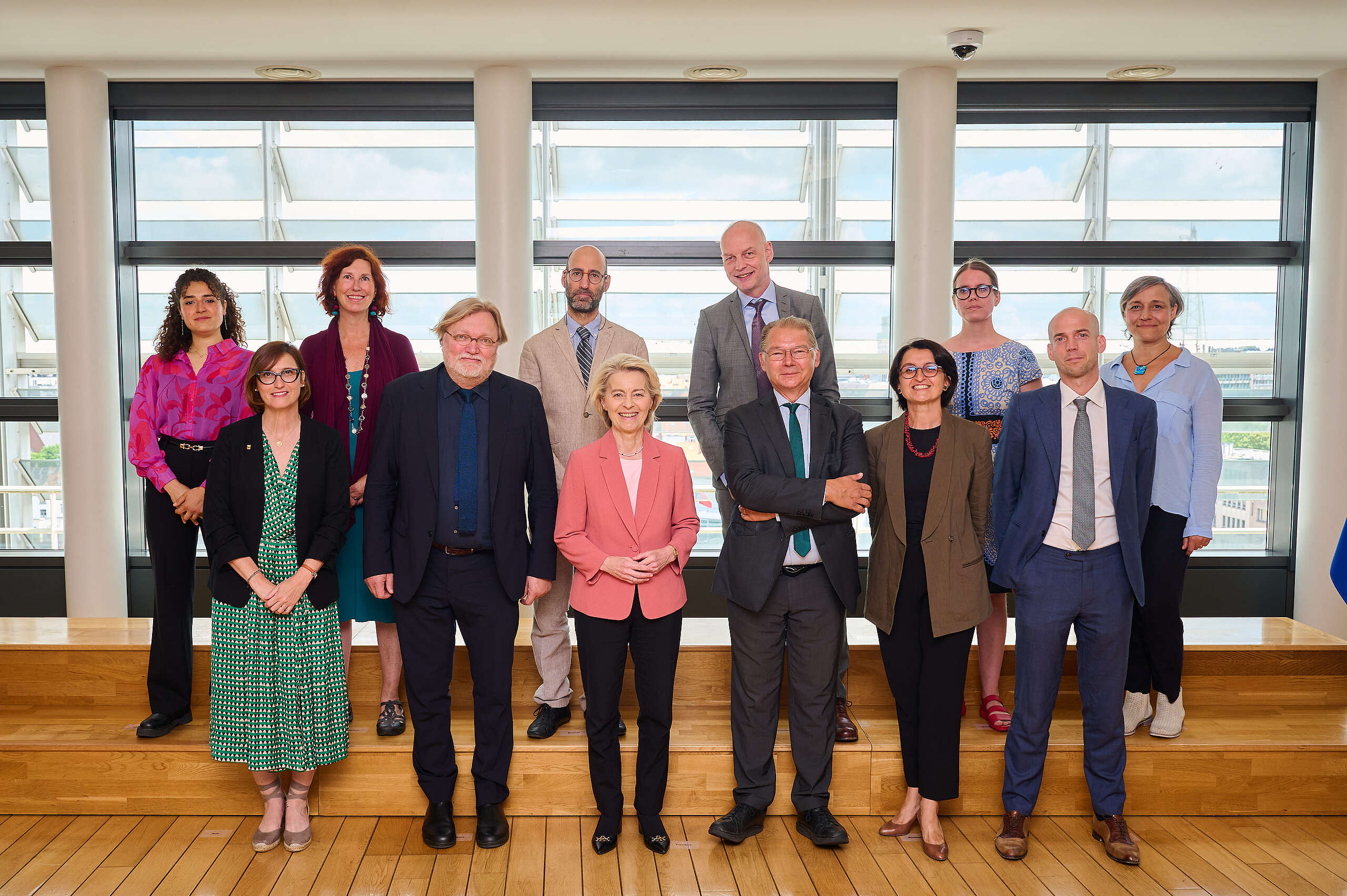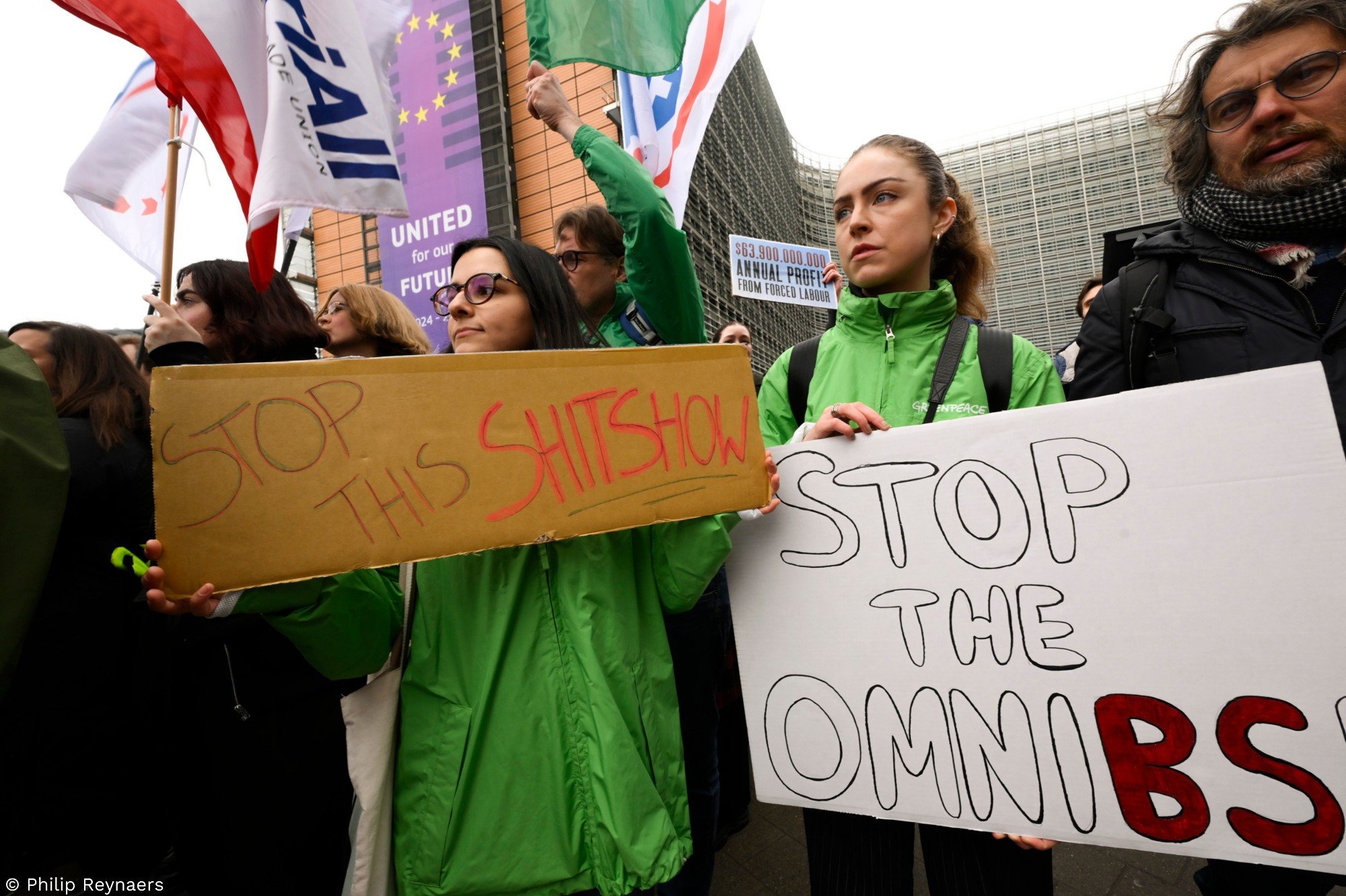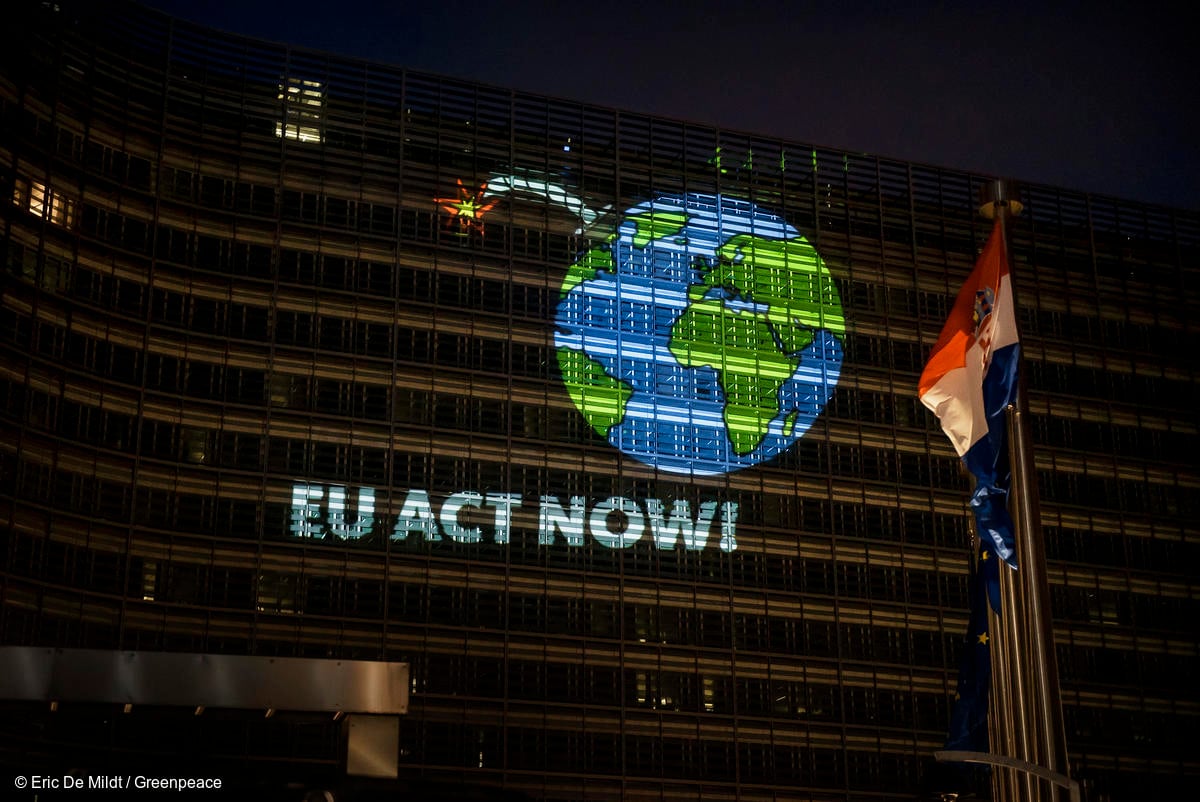The Covid-19 pandemic is showing just how fragile our societies, economies and democracies can be. Along with many other organisations and governments, the European Union is scrambling to prevent the worst from happening, with a strong focus on keeping the European economy afloat. Their responses must address the underlying issues that make our societies so vulnerable and help us transition away from the current social and economic model which drives inequality and environmental destruction, and leaves us unprepared when crisis hits.
A lot of systemic inequality has been exposed as the realities of the pandemic response set in. It’s easier for some people to deal with the crisis than others. Growing inequality, including the rise of the gig economy means a lot of people are exposed.
Greenpeace, along with many others, are calling for any spending to help build a better and more resilient society, based on better health care, employment standards, social and environmental protections.
From the Covid-19 response to the flagship European Green Deal, the European Commission’s actions must be based on values – human dignity, freedom, democracy, equality, rule of law and human rights – which are enshrined in the EU Treaties, the EU Charter of Fundamental Rights and the European Pillar of Social Rights.
Care for each other, the environment and science must also underpin the basis for any decision making. As the WHO Regional Director for Europe says, in such times “there can be no doubt that the time-honoured precautionary principle needs to guide our decisions”. As well, all spending must also be in line with the Paris agreement, including energy subsidies, funding under the EU’s Common Agricultural Policy and cohesion and structural funds.
The European Commission must invest in people and avoid bailing out polluting industries. Instead, it must invest public money in a new start and help us transform our society into one where we truly take care of one another and the only planet Earth we’ve got. In its inaugural European Green Deal package, the European Commission set the stage for an environmental transition. The current Covid-19 crisis and resulting economic downturn demonstrates the profound need for the social and economic transition to be both just and green. Combining today’s spending with a true New Green Deal would do just that.
For that reason, the EU should:
Put people – not corporations – at the heart of the response to the crisis
- Ensure individuals who are in distress as a result of the Covid-19 crisis receive sufficient compensation so that no one goes hungry, loses their home and/or access to healthcare. Public health policies must place the interests of the least well-off at their center, or risk increasing the inequality gap and poverty levels, as was the case after the 2008 financial crisis.
- Adapt the budget, as well as temporary spending, to meet the challenges we face. Rather than trying to plug the holes in today’s economic model, as many of the Commission’s proposals do, invest in systems that would support people and the planet, whatever the situation. Concretely, this means investing in a just, green and community-led transition to a carbon-free economy, high quality jobs that will sustain people even during times of crisis and in public services treated as essential public goods, such as healthcare for all, education for all, social care for all, accessible public transport for all, and access to cultural institutions for all, among others.
- Stop enforcing austerity – in the long-term too – and start promoting wellbeing. Transform the EU’s Stability and Growth Pact into a Wellbeing Pact that prioritises and invests in human wellbeing and the preservation and protection of the natural environment that sustains us. EU spending guidelines for financial institutions and companies must be adapted, social clauses that protect workers’ rights must be added, and activities that harm our environment and health must be excluded. EU countries must be held accountable for building a just society, providing a healthy environment and ensuring a livable planet for future generations.
- Invest in people, not industries. Where governments are planning to provide financial support, it must be conditional on not laying off workers, on ensuring all types of workers have access to the services they need, on consultation with unions or other employee representation bodies where workers are not unionised. For heavily polluting industries, extra care must be taken to ensure that funds meant to support workers are not used to serve the promotion of corporate interests, to prop up environmentally devastating practices or the salaries of executives.
- Make workers rights a priority. Since the 2008 recession, workers’ rights have been slowly dismantled all across the EU: from the gig economy to “flexible” contracts, including those for on-demand work. Such working conditions force people to work when they should not, including in order to prevent the spreading of disease. Workers rights and collective bargaining need to be ensured for all industries.
Sustain the planet
- Use current investments to better equip us to manage the ongoing climate and biodiversity crisis, which poses growing threats to people’s lives, health, livelihoods and wellbeing. The EU should support a shift in industry and infrastructure to reach a new net-zero carbon economy by 2040 in order to stay within 1.5°C of heating.
- Following the 2008 financial crash, we saw public funds flow disproportionately to polluting industries and to society’s most wealthy. The response to the global financial crisis exacerbated inequality and gave a counterproductive boost to the industries driving climate change. The European Investment Bank (EIB) and the European Central Bank (ECB) must lead the way by only promoting investments in real climate solutions, especially those which benefit the greater public the most, such as railways and other public transport, cycling; public water supply; local waste management solutions that prioritise local reuse systems, composting, and repair; community-owned renewable energy and energy efficiency. Such solutions should permanently be exempt from the EU’s 3% national deficit rule.
- The longer we wait to reduce greenhouse gas emissions and to protect biodiversity, the greater the cost to human lives and livelihoods, the greater the harm to the planet that sustains us, the greater the financial costs and the more unjust the impact and burden will be. The current crisis is a wake up call to our duty to protect people and the planet. Therefore, the EU must set its 2030 climate target to at least 65% emissions reductions in line with the latest science, and halt biodiversity loss starting with a strong EU Biodiversity Strategy.
- In times of social and economic instability, it is even more important that healthy and ecological plant-based food should be widely available and affordable. This can be done by shifting subsidies, reducing taxes on fruit and vegetables, and by removing tax breaks (e.g. reduced VAT rates) and other indirect subsidies for meat and unhealthy, processed products.
- More than one-third of the EU budget currently funds agriculture subsidies under the CAP. This public money must be transitioned away from unviable and unsustainable factory farms and intensive agriculture to more ecological farming that participate in building a diverse, resilient food and farming model while protecting biodiversity.
Reinforce strong democracies
- Protect the right to privacy. The Charter of Fundamental Rights gives EU citizens the right to a private life (article 7) and the protection of personal data (article 8). In current circumstances, the EU needs to ensure that national and regional governments do not use the pandemic to justify tracking people’s movements by, for example, using smartphone location data. Emergency measures encroaching on people’s privacy must be proportionate and temporary. Moreover, governments must guarantee transparency and accountability when processing personal data.
- Ensure rules developed in the context of a national emergency only apply directly to the emergency. Governments must not be allowed to give themselves extra powers that are maintained after the crisis is over or that extend beyond what is needed to contain the crisis.
- Safeguard elections. Elections are pivotal for any strong democracy. As activities are restricted to reduce the spread of the virus and elections postponed, governments must not use this as an excuse to stay in power for as long as they desire. The EU needs to introduce a plan to sustain democratic institutions and ensure elections are held in due course and/or that other voting systems are devised for times of crisis.




